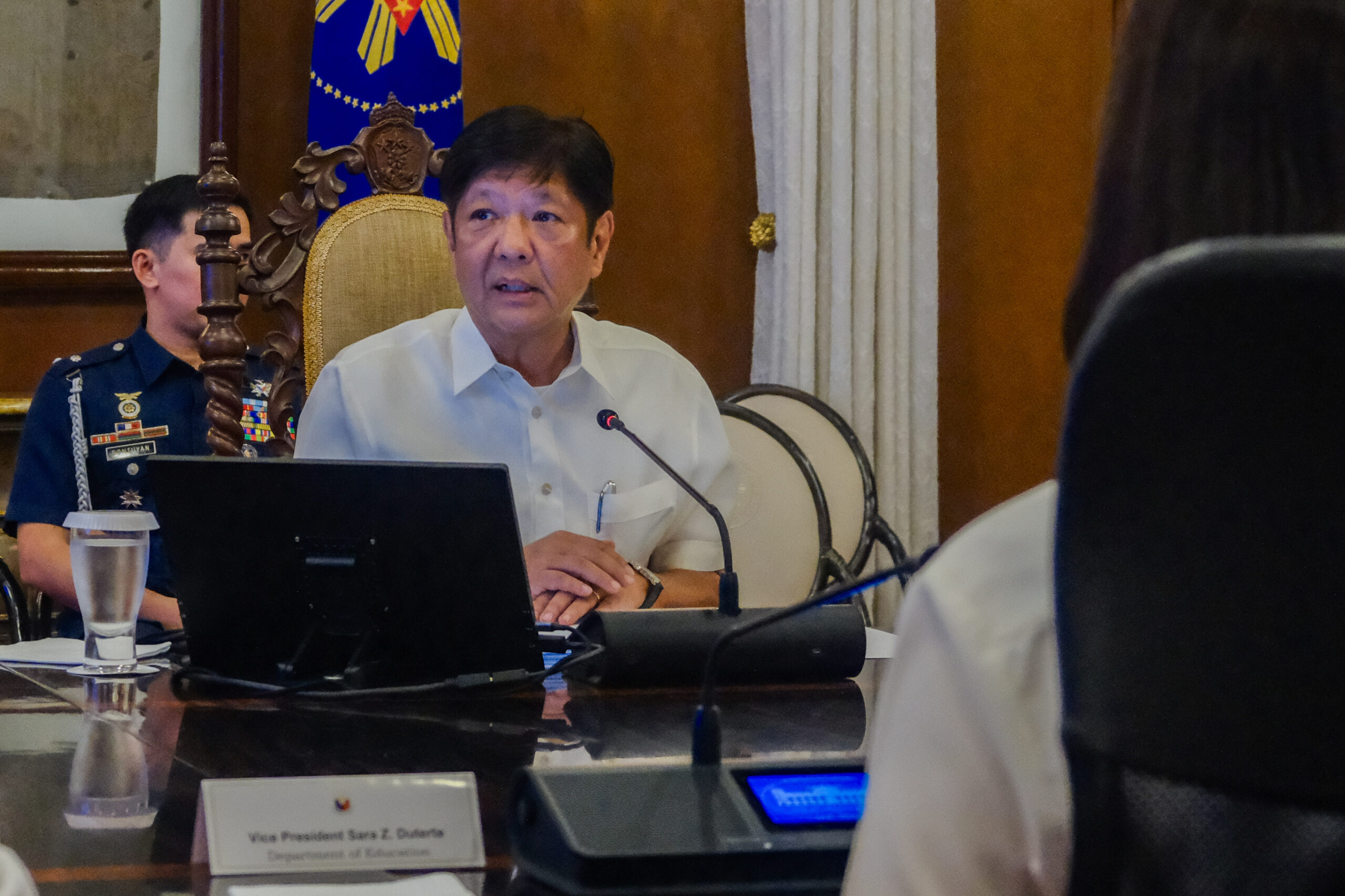
President Marcos PPA POOL PHOTO
MANILA, Philippines — President Marcos has declared a total of 527,978 square meters, or 52.8 hectares, of land in Pasig City and in Tanza in Cavite province as special economic zones (ecozones) to further promote the country’s growth by attracting private investments.
Proclamation No. 512 declared nine parcels of land along E. Rodriguez Jr. Avenue in Barangay Ugong, Pasig City, with an area of 123,837 sq m (12.4 ha) as an information technology (IT) park to be known as Arcovia City, a township project of tycoon Andrew Tan’s Megaworld Corp.
Proclamation No. 513, meanwhile, declared six parcels of land in Barangay Calibuyo in Tanza, Cavite, with an area of 404,141 sq m (40.4 ha) as the MetroCas Industrial Estates Special Economic Zone.
Both directives were signed on April 1 by Executive Secretary Lucas Bersamin.
READ: Palace resumes processing of Metro Manila ecozone applicants
Special Economic Zone Act
The President issued the proclamations as provided by Republic Act No. 7916, as amended by Republic Act No. 8748, or the Special Economic Zone Act, and upon the recommendation of the Philippine Economic Zone Authority (Peza).
Signed in 1995, RA 7916 was enacted with the goal of encouraging economic growth through the development of ecozones across the country and mandates Peza to manage, register, and supervise their operations and development.
It gives fiscal and nonfiscal incentives to registered business enterprises located in the ecozones.
As of December 2022, Peza has established 421 special ecozones for housing and 4,346 locator firms or projects.
Of these ecozones, 300 are devoted to IT, 78 are manufacturing parks, 23 focus on agro-industrial ventures, 17 are in tourism, and three are medical tourism parks.
Tax perks
According to the Peza website, fiscal incentives for export-oriented and domestic market-registered enterprises in ecozones include an income tax holiday of four to seven years, a special corporate income tax rate of 5 percent, and enhanced deductions from taxable income for five to 10 years.
The nonfiscal incentives include the tax-free and duty-free importation of capital equipment, raw materials, spare parts or accessories; value-added tax (VAT) exemption on importation and VAT zero-rating on local purchases for goods, telecommunications, power and water bills; exemption from payment of national and local government taxes and fees for the period of availing of the special corporate income tax incentive; employment of foreign nationals and issuance of a two-year Peza visa for them, and a long-term land lease of up to 75 years.
Under RA 7916, ecozones need to receive a proclamation from the President before they can start operations.
Gov’t priority
The Marcos administration has so far proclaimed ecozones worth P3.5 billion, among them Felcris Centrale IT Park, Robinsons Cyberpark Bacolod, Lopue’s Mandalagan IT Center, Philtai Central Luzon Industrial Park, Ecco 4 Building, Marina Town Dumaguete and Naga City Industrial Park.
Last year, the government also approved the expansion plans of the Lima Technology Center, Hermosa Ecozone Industrial Park and Kamanga Agro-Industrial Economic Zone.
Under the administration’s five-year Philippine Development Plan (PDP), ecozones will play a vital role due to their ability to accelerate economic growth.
PDP 2023-2028 tasked Peza to speed up the implementation of the ecozone transformation roadmap, which would expand the different types of ecozones that could register with Peza.
The economic blueprint noted that the creation of ecozones would maximize investments and promote industrial dispersion, especially outside the congested metropolitan areas.